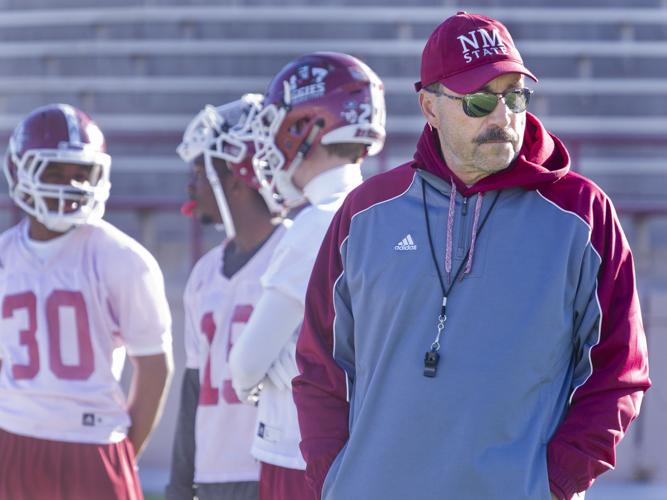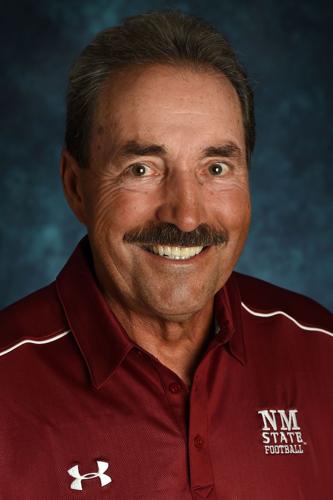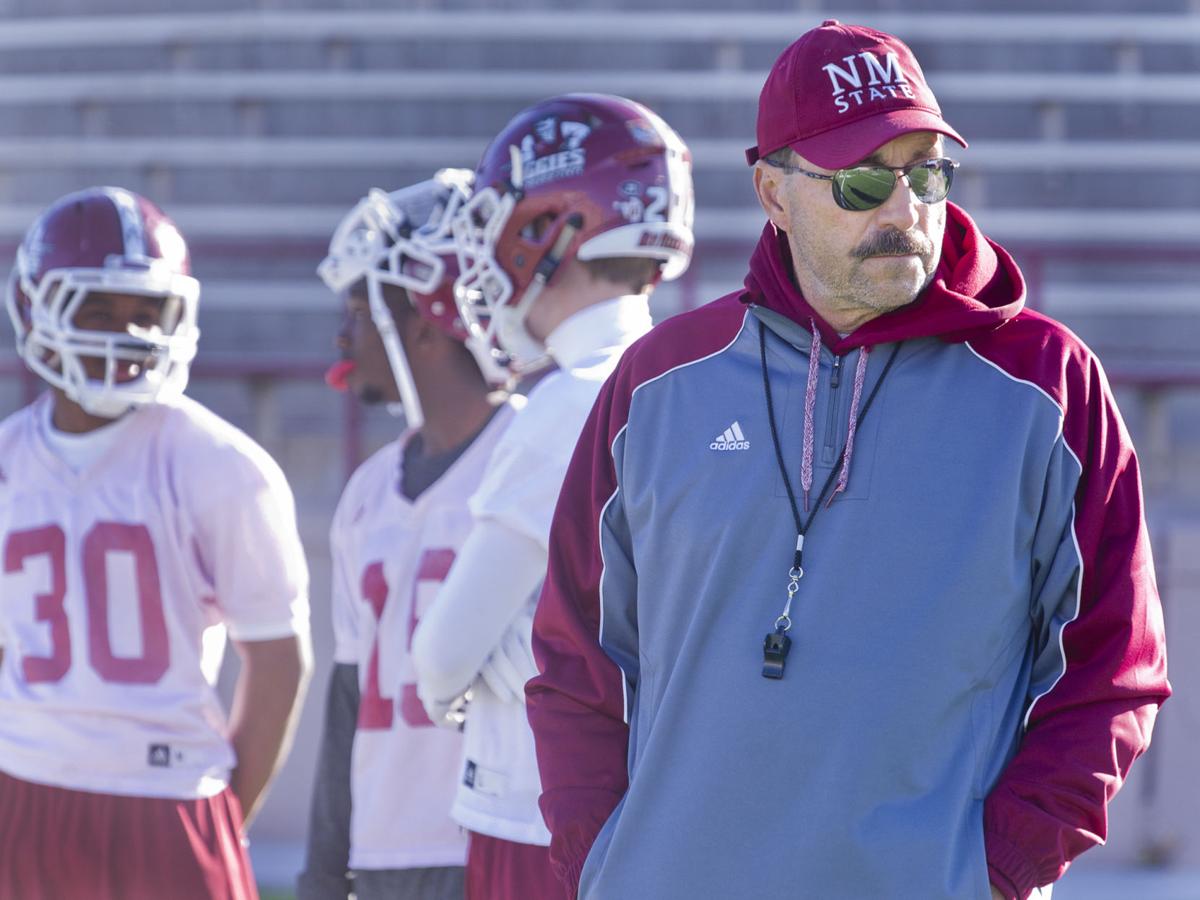After nearly 50 years of coaching football, Frank Spaziani has found himself in the darndest of places: Las Cruces.
It’s a far cry from Clark, New Jersey, where the former Boston College head coach was born. The New Mexico State defensive coordinator jumped back into the game in 2016 after a four-year hiatus following his firing by the Eagles, whom he coached from 2009-2012 after being an assistant with the program for a dozen years.
He got back into the game at 69 because football has seeped its way into his veins; a multi-sport star in high school, he played quarterback and linebacker for Joe Paterno and the Penn State football team and pitcher for the Nittany Lions baseball team in the late ’60s.
As the Aggies prepared to face the other Aggies — Utah State — in Friday’s Arizona Bowl, Spaziani took some time to discuss football, his break from the game, and what led him from the east coast to New Mexico:
You spent four years off the sidelines; why, and what was that like?
A: “I have three kids, an older boy (Joseph), and twins (Avery and Andrew), and they were involved in high school football, volleyball, basketball. I did what I hadn’t been able to do all those years. Hang out with my kids. College coaches spend more time with other people’s kids than their own. I got to go to my kids’ football games, basketball games, became a volleyball aficionado following my daughter around the country with her club team. That’s what I did.”
How did you get back into coaching?
A: “My older boy went to Virginia and the other two were finishing up, and when they graduated, it was time to keep myself active again. I was at the end of my leash. I couldn’t stay out much longer and hope to get back in. It was either now or never. I was very fortunate to know (NMSU coach) Doug (Martin), and he’d been after me, and I’d I said I wanted to watch my kids, but as soon as they graduate, if you still want me. …”
What brought you back into the game?
A: “I wanted to compete. You compete your whole life, and I wasn’t ready to give it up. This opportunity came up, the circumstance to work for Doug, and the parameters that he expected from me fit with what I needed to be doing. My recruiting is minimal, and that was a big factor. I’m not flying around doing a young guy’s job. I’m not sure I woulda come back and just taken any job. But I wanted to compete.”
Football is just one of those things in life that when it gets in your blood, it’s hard to shake it. Why can’t you kick it?
A: “In football, there is so much strategy involved. What do they say about football coaches? They’re smart enough to understand and dumb enough to think it’s important. There’s a lot of competing against another guy, the other coach’s strategy. And it’s like being a teacher. I used to say to myself, why don’t they just give it up already? And now you go, ‘now I know.’ As long I can do it, I want to do it.”
What was your experience like as head coach at Boston College? After so many years as an assistant, did you enjoy it? Is the goal to do it again?
A: “Once you give up striving for a goal, you’ve got one leg in the grave. You’ve got to be thinking about something, and who cares how old you are? You’ve got to think about striving, striving for excellence. I wasn’t done competing, and I’d sit there and watch games, and say I can do this better than they’re doing. Rather than being a fan, I wanted to be involved. And this situation was right up my alley.”
What is the most difficult part of being a head coach, versus an assistant?
A: “The expectations — it’s managing the expectations and those expectations are really high. It’s the economics of it. A lot of those guys are getting well-compensated to listen to a booster or an alum or a president. They have to balance that with football. They’re compromised. But it’s the price of glory.”
Forget the difference between being a head coach and an assistant again; you moved from Boston to New Mexico! Can you describe the culture shock?
A: “Look, when I went to Winnipeg it was a culture shock. Calgary. But coming out here, it’s totally, totally different. Forget the geography, the weather — it’s a different way of life. A different people. It’s really eye-opening. It’s been an educational experience. You’re never too old to grow. These are nice people out here. It’s a nice part of the country a lot of people don’t get to experience. To be part of the community, to see how they function, what their daily lives are, it’s changed my perspective.”
So, the important question: Do you own a cowboy hat?
A: “I grew out of that. In my 20s, country was cool, and I had the hat and boots. Right now, my feet hurt, I don’t need to dress like a cowboy. I’m living with them already. I wouldn’t fit in with them.”
You’ve coached for nearly 50 years, and from your perspective, have the kids changed? Has the game changed? Have we changed?
A: “Yeah, they’ve changed, and the world has changed, and they have different interests and different perspectives. But we’re still dealing with human beings here. Young people still want discipline. They still want structure, guidance, instruction. It’s the same as raising kids. It’s the same deal. They’re young people and they need certain things. Those things don’t change in 60 years. Hard work, discipline, focus, respect — that all carries over into your life. Hard work doesn’t change. It still pays off in 2018 like it did in 1965.”







